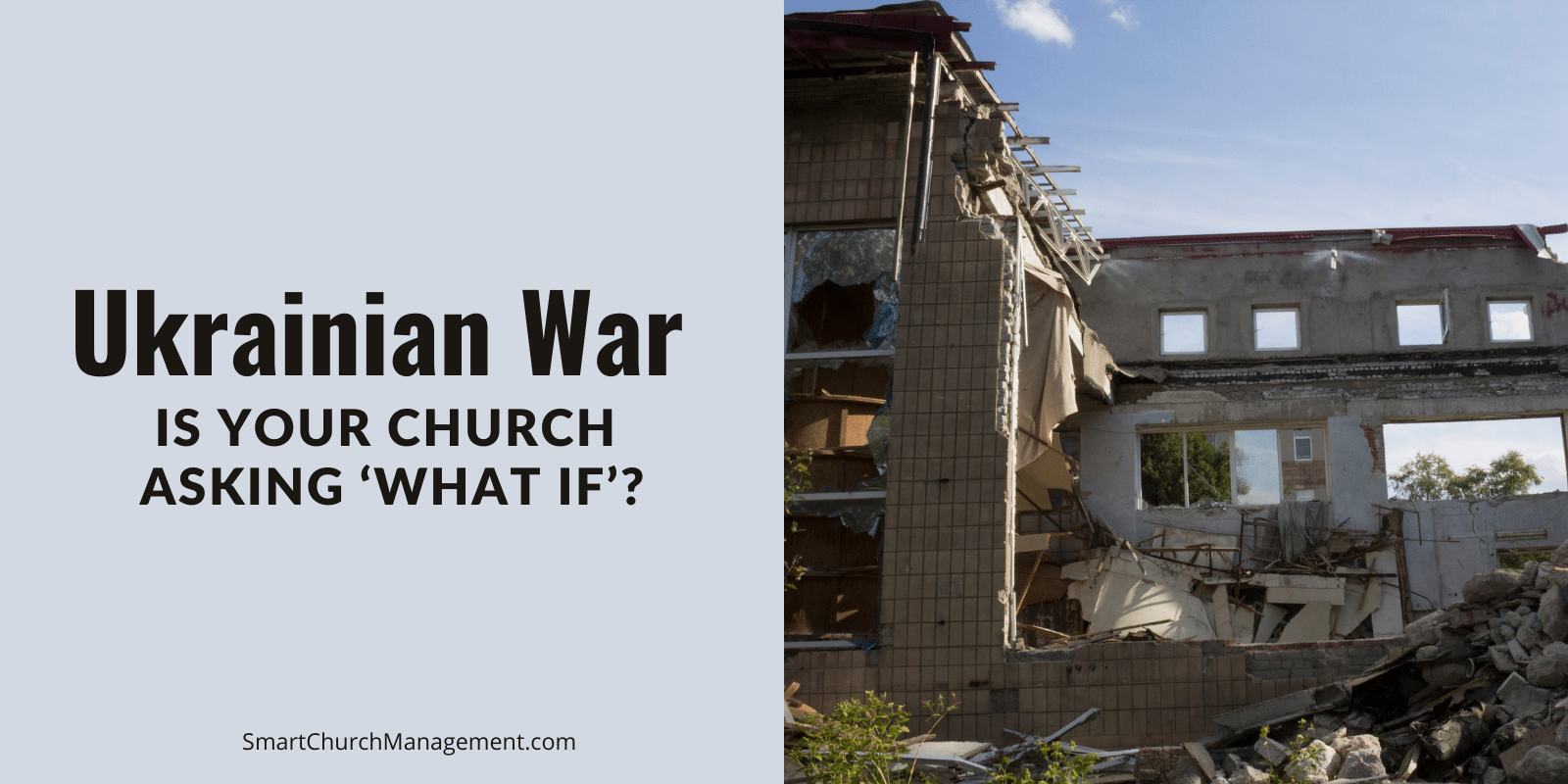Estimated reading time: 6 minutes
It is difficult to believe what is taking place in Ukraine.
I watch the news, and it feels like a fictional movie. I think this kind of thing doesn’t happen in our modern world. But it is in fact, happening right before our eyes.
Just a few days ago, the Ukrainian people had doubts about this Russian invasion. They had confidence that it would never happen – yet it did.
The images are overwhelming. The toppled buildings, the burned-out cities, and the devastation among the people are difficult to imagine.
As Americans, we tend to live in this little bubble. We have observed countless wars from a distance. But not in any of our lifetimes have we seen a war on our homeland.
We trust that our elected officials will make sure that never happens.
However, the people of Ukraine probably never thought this possible, either.
As church leaders, we know that our number one responsibility is to pray – for the Ukrainian people. But we also need to pray that God will protect us from such horror.
God has called the church to help people. But in order to be able to help people, we must be prepared by thinking through any number of possible what-if scenarios.
But What If?
Asking questions helps us to think through a response before we are in a fast-moving, devasting event.
I think it is safe to say that some of the Ukrainians are in survival mode. You can also bet that the churches are scrambling to provide resources and support to their communities.
As we follow these events we should be asking what if to help us determine how we would respond and prepare for what we could do to help in any number of devastating events.
I challenge you to gather your leadership group and simply ask the question, what if?
What If The United States Were Under Seige?
No way, you say. I think that also. However, this world has gotten darker in recent years, and assumptions we made just a few decades ago may not be accurate now.
This country has demonstrated time after time its resiliency and generosity in times of crisis and devastation.
And the church is often the first on the ground to help.

Ask your team to think about those things the church should and could be doing to assist and support our nation.
A contact on the ground is always a necessary first step in connecting and offering help and support.
For instance, does your church have partners in other states or cities that you could collaborate with to help?
Think this through by listing all contacts and developing a database with contact information.
What If Your City Was Under Seige?
As we watch this crisis unfold, you can see that the Russians have a strategy to take over cities of influence – like their capital, Kyiv.
It doesn’t appear that every city is under siege, but the ones that are, are in a desperate situation.
Ask your team what your church would do if that were the case in your city.
What kind of support can your church provide for your city? Prayer is the first line of defense, but ask your team to think about tangible things that your church could prepare for.
For instance, does your church have facilities that could shelter displaced refugees? Do you have the resources to feed and shelter people who are impacted? What about basic first aid?
The possibilities are endless, but I think you get the point. Think through those things that your church has the facilities and resources to use to help and put together a plan.
What If Your Church Was Damaged or Destroyed?
Every church should have a plan in place in case it is confronted with an unexpected emergency or disaster.
A church emergency preparedness plan is a written document that answers the questions of who, what, where, when, and how to get your ministry back up and running as quickly as possible following an emergency or disaster.
For instance, an emergency plan would contain information about things like:
- Clean-up – a plan for overseeing the logistical side of cleaning up your building.
For instance, this might contain a list of employees and volunteers who could be contacted to help with clean-up as well as access to supplies and materials.
- Rebuilding – a plan for steps that would need to be taken to get the church functioning again.
For instance, your plan might include facility information, building contractors, architects, etc. The goal is to have a quick reference at a time of chaos.
- Communication – your process to communicate with members, volunteers, and the community.
Members will need to have lots of information. This section might include access to member cell phones, emails, or home phone numbers that are ready to use in communication.
You might also want to list someone who is responsible for providing daily updates on your website and social media accounts.
- Facilities – your plan for having a place to meet while your church is damaged.
We have learned through the COVID crisis that when churches are shut down, members scatter. Develop a plan for the use of another facility where you can hold temporary services.
Reach out to local schools, libraries, movie theaters, or other churches to identify a place to worship until your building is usable.
Make sure these facilities have the technology to livestream your services for those members who choose to participate from home.
- Computer networks – A plan for safeguarding and accessing sensitive church information.
Technology is how we work. Have a plan to safeguard your church’s digital information. If you haven’t taken the step to cloud technologies, now might be the time to consider it.
All you have to do is think about your computer system being destroyed without a backup. This is not a scenario any church wants to deal with.
What If The Church Down The Street Were Destroyed?
We are the body of Christ and have the responsibility to take care of each other.
If a ministry is hurting, we are all hurting. Make a plan for how you could help a local church in need.
Ask yourself if there are ways another church could use your facilities for church services, sheltering members, or feeding volunteer teams.
This Is Simply An Exercise
As leaders, it is our responsibility to oversee the church. Part of that responsibility is to make sure the church is prepared for the predictable as well as the unpredictable events that could impact its effectiveness.
I am still confident that God is in control and is a very present help in the time of need. However, preparation is the bedrock of providing logistical calm during an unpredictable storm.
So I ask you, what if you took the time to make a plan? What if you were prepared for the unexpected? I would bet your church would be the first to provide an organized response to what the enemy meant for harm.
Have you and your team considered pursuing a certificate in Church Administration? If not, now might be a good time to help your leadership team advance to the next level of effectiveness.



